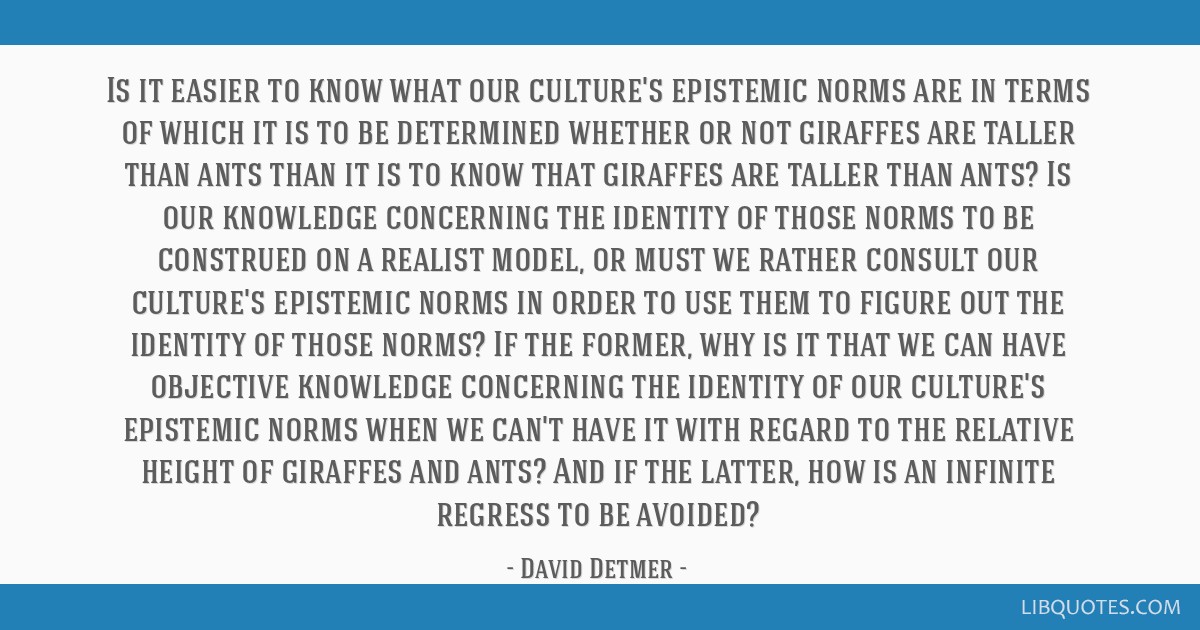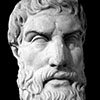Is it easier to know what our culture's epistemic norms are in terms of which it is to be determined whether or not giraffes are taller than ants than it is to know that giraffes are taller than ants? Is our knowledge concerning the identity of those norms to be construed on a realist model, or must we rather consult our culture's epistemic norms in order to use them to figure out the identity of those norms? If the former, why is it that we can have objective knowledge concerning the identity of our culture's epistemic norms when we can't have it with regard to the relative height of giraffes and ants? And if the latter, how is an infinite regress to be avoided?
p. 130 - Challenging Postmodernism (2003)























